Edgelord #2: Harmful Literature – A Racial (G)Ambit, by Lev Parker
In the second SP column by Morbid Books editor Lev Parker, the Surrealist provocateur takes aim at another literary magazine that recently caused a scandal by publishing a "racist" short story
Shortly after I filed my first column for Safety Propaganda examining what it might mean to be “harmful” in art or literature, I encountered the rarest of things nowadays: a poetry magazine causing a minor scandal. One of the editors hadn’t groped an intern, as is sadly more common, but it had published something that was said to be “harmful.”
Ambit magazine was founded in 1959 and has a history of producing innovative new work. When JG Ballard was the fiction editor, he ran a competition to find the best story written under the influence of drugs. The winner was the avant-garde British writer Ann Quin, who had only taken a contraceptive pill.
But in recent years, like almost every literary magazine apart from my own, Ambit became just another vehicle for bland, ineffectual vanity. For as long as I’ve known of its existence, Ambit has been so dull, the idea that it might produce anything construed as offensive, let alone harmful, made me think for a moment that it might have found its edge again.
Alas, the recent brouhaha concerned a story the magazine republished in 2019 by the Booker-nominated South African-born author who now resides in the UK, Deborah Levy, called “Proletarian Zen.” Perhaps a more appropriate title for the story would have been, “Story of the Squinty Eye.”
There’s no doubt, “squinty eye” is a racial epithet — once memorably used by Prince Philip — that belongs in the historical dustbin. But then, Levy’s story was controversial because it was basically one long, extremely unfunny riff on how East Asian people speak English.
As soon as somebody on Twitter complained, Ambit’s editors issued a groveling apology, noting how the story they republished in 2019 was originally printed in the 1980s (when racial stereotypes were fine!). To avoid being “cancelled,” they copped to the accusations by rolling out all the meaningless buzzwords that seem almost like compulsory verbiage for any cultural institution nowadays, such as “inclusion” and “diversity.” They even accepted that the story was “harmful” to the East Asian community.
To be fair, they’ve been rehearsing these lines for a while. In 2013, editor Briony Bax said in an interview, “We take diversity seriously and talk about it regularly at our editorial meetings. I think it is easy to do lip service to diversity especially when filling in funding forms. I believe that to truly be diverse you need to reach out to different communities and invite and welcome them to participate.”
Let’s pull this apart and see what’s really going on with this, ahem, racial (g)Ambit, shall we? Firstly, on the issue of diversity it should be noted that Briony Bax is married to the cousin of the magazine’s founder, Martin Bax. They don’t strike me as interesting enough people to stalk, and I couldn’t be bothered to do much more sleuthing, but it seems notable that the editorial staff and board of trustees for this little magazine also contain at least two more people—making it four in total—with the same name who appear to be from not just the same race or class, but the same family. I’m sure they were all appointed because of their outstanding skills and competence.
Similarly, I haven’t raked through every single issue nor every statement Ambit editors have ever made, although I’m fairly sure “nepotism,” “conformity” and “brown-nosing” are never openly stated as core values. Although if they were being honest, as I am (often to my detriment), they ought to be stated as mottos not just for Ambit, but every literary and arts magazine in existence – including my own.
That’s right – fuck equality, diversity and all the rest of this meaningless bullshit. Soon after I realized what ungrateful swine most of the contributors to A Void magazine were, my press Morbid Books quickly became an autocratic personality cult, based entirely on my own tastes, preferences and personal allegiances.
Other magazines and institutions are the same, but they not only won’t admit it – they get really irate when you point it out. In a rare honest slip, the Poetry Society in London once admitted to me that the reason our publications were excluded from their otherwise “diverse” and “inclusive” mail-shots was due to the mission statement for A Void issue 1:
“To paraphrase Tolstoy, each literary magazine stinks in its own way, although there are some startling consistencies between all the titles, which makes our job of vaulting them all in one go easier than it should be[…] It’s sickening to think that the art form Dada and Surrealism emerged from is now almost exclusively a conformist vehicle for toadies, funded by government agencies and universities run as businesses.”
The Poetry Society said that their editors might be “offended” by the editorial and branded us their “enemy.” But by blacklisting our press for pointing out an inconvenient truth, they proved me right.
Now let’s go back to the other issue at hand here, the really big stinker. After Levy’s story was called out on Twitter, Ambit co-editors Romalyn Ante and Kostya Tsolakis felt the initial editorial apology didn’t go far enough, so they issued their own separate statement that said: “We know that it has caused deep hurt to our readers…” [emphasis mine]
Like I said in the first installment of this Edgelord column, I don’t doubt that words, even art and literature, have the potential to be offensive, even harmful – they just aren’t very often. Is this a rare case of it, or just hyperbolic nonsense from an institution — a registered charity that has received Arts Council funding — trying desperately to get themselves out of a storm in a teacup by cowering to groupthink consensus?
What’s remarkable in the current climate of cancellations — and maybe even admirable — is that even after the editors admitted her story caused “harm,” Levy is still listed as a judge for a forthcoming Ambit short story competition. I’m pretty sure, had somebody who didn’t have Levy’s prestige was said to have harmed minorities, they would be hounded out of their positions.
In her defense, Levy explained away what her editors called a “racist” story by claiming that it was originally “commissioned” in the 1980s as a “satire on stereotypes in fiction.” Levy said she had not given Ambit permission to republish it in 2019.
Frankly, somebody is telling porky pies here. Because Ambit’s own website and its Wikipedia entry states that the magazine is put together from “unsolicited, previously unpublished poetry and short fiction submissions.” So if you believe Ambit, they don’t commission work at all, let alone racist garbage, so Levy couldn’t have been solicited to write such a thing. If you believe Levy, somebody did commission it, and therefore the “submissions” page on Ambit’s website is full of shit. For what it’s worth, I think they both are.
The co-editors state that “Proletarian Zen” not only should never have been republished in 2019, it never should have seen the light of day in the eighties either. And on that point, I entirely agree with them. Because it’s a really bad piece of writing.
In fact, I’ll go one further. If Ambit really are sincere about their desire to keep “improving,” as they said in their apology, I’m willing to go through their archive and erase all the other dross they’ve ever published. It could be quite a laborious job, so I would require substantial reimbursement.
On the specific issue of whether Levy’s story, an unsophisticated catalogue of tin-eared dialect, idiotic syntax and broad stereotypes, was actually harmful: I have never been personally harmed by a piece of writing that didn’t refer to me specifically. And the story does not refer to anybody specifically. It’s a work of fiction containing fictional characters and scenarios. It is bad precisely because it does not contain any characters with authentic feelings or emotions.
I’m not sure who in the East Asian community was actually harmed by this any more than I don’t know if old TV shows that show people blacking up actually harm anybody now.
I’ve said before, words can hurt people, but I have always found it difficult to see how words that don’t refer to you, when you know the author didn’t have you in mind or even knows you exist, can hurt you, or anybody else, unless they’re so extreme that they’re calling for something concrete that is actually, demonstrably harmful. Like genocide, for example, or exclusion from certain institutions or opportunities.
Leaving aside the genocide — because I don’t think the women who hold signs up demanding “kill all white men” are actually capable of doing it — I do actually know what it feels like when a person’s words contribute towards exclusion from institutions or opportunities, i.e. they actually harmed me.
In addition to a couple of justified sackings, I have been lied to, fired and blacklisted from university lecturing and teaching jobs for trade union activity. This straight-up employment discrimination was not only harmful in itself, it was cloaked in bureaucratic untruths and excuses that not only infuriated me and contributed to my worsening mental health. These bureaucratic fictions — because you’re not allowed to say openly that you’re firing somebody for union activity, so you make up another excuse — served to repeat that harm to anyone else who exercised their legal and contractual rights as I did.
There aren’t many days go by when I don’t fantasize about sending those institutions (not Ambit!) bombs through the mail, or at the very least a Christmas card from Ian Brady. Instead, I have learned to channel my misanthropy into art and literature which, while sometimes dark and violent, is more honest about whose purpose it serves, and what our “values” are. Namely, it’s there to make me feel like I might be as good as, if not better than the institutions who peddle what Schopenhauer called “cherished mediocrity” of “lofty words and low sentiments.”
Why do I mention this in relation to Ambit’s racial gambit? Even as a white geezer I can empathize with people who are discriminated against and denied opportunities because they came from the wrong place, didn’t have an economic safety net so they had to stand up for themselves, or didn’t have access to the “hidden curriculum” of bourgeois euphemisms that are required to survive the modern corporate environment. I’m also aware of how historically, culture has played a part in enforcing stereotypes that legitimize discrimination. It hurts.
Like in Rudyard Kipling’s day, or even in Margaret Thatcher’s, works of art that were especially derogatory to minorities — especially when the shelves were packed with them, and they had a profound impact on culture — could indirectly cause harm to people and communities because it contributed towards a culture of bigotry.
So maybe Deborah Levy’s story was actually more harmful when it was first published— in the 1980s — than it is now, when conditions for minorities, while hardly perfect across the board, are a lot better than they were back then. In liberal arts institutions, “diversity” has become such an article of faith that minorities are not only hardly ever shut out or harmed, they are pro-actively sought out, included and showered with grant money. I know a black woman, for example, who has been given a £10,000 grant to make a sound installation that…wait for it…explores “personal identity” and “oppression.” If that’s what oppression looks like nowadays—giving people ten grand—where do I sign up for some? Come and oppress the hell out of me.
So nowadays when somebody talks about a work of art being “harmful,” they nearly always do so hyperbolically and disingenuously, from a position of power and privilege, in a way that devalues and belittles people who have actually been oppressed and excluded or harmed, but in ways that isn’t fashionable to talk about, or who don’t have a megaphone to talk about it and gain lucrative social credit from making celebrated works of art about their “oppression.” To see what actual oppression might look like, I suggest visiting Russia, where homosexuals and Chechens are not showered with grant money to make sound installations and other works of art exploring their oppression.
The most egregious example of the discourse of harm being wheeled out in a way that served only to infuriate and divide people against a minority’s cause was a trans woman who worked at the Guardian complaining that she felt “in danger” working at the paper after Suzanne Moore wrote a piece from a “gender critical” perspective. Moore was subsequently hounded out of her job by 338 of the paper’s staff who accused her of being a harmful presence by writing opinion pieces about sex and gender. I didn’t vote for Trump or Brexit, but I can see why somebody who works down a coal mine or in a warehouse — like my family members who suffered life-changing injuries in industrial accidents — might be tempted to do that just to spite some brittle, attention-seeking moron who claims that the Guardian office is a dangerous place to work.
In another sad irony that is almost certainly missed on them, the same folks often claim that Brexit and Trump are harmful. They may be correct. But they’re not smart enough to realize that the privileged narcissism of identity politics and its discourse of harm is a contributing factor towards these harmful political events, because it’s what drove people to vote for them out of spite.
So I find it hard to believe that anybody was harmed or oppressed by Ambit magazine reprinting a crap Deborah Levy story in 2019. And that’s a good thing! I see no benefit in harming the East Asian community, or any other ethnic group for that matter.
One of the assistant editors who complained that it was harmful, Romalyn Ante, is a woman of Filipina origin who now lives in London. She still co-edits the poetry section of Ambit. Presumably their office isn’t a cesspit of racial hatred and discrimination. If it was, presumably she would have complained about that as well, and would have been well within her rights to do so.
Nor do I imagine that a story in a genteel magazine read by a few poets and professors has radicalized any of its readers to discriminate against or mistreat a member of the East-Asian community. The most prevalent form of discrimination and exclusion that goes on in arts institutions nowadays is against artists who refuse to accept their divisive and exclusionary ideologies by questioning, for example, unsubstantiated claims about short stories being “harmful.”
Funnily enough, while all this was going on, Ambit was preparing to relaunch the publication as Ambit Pop, with issue 1 guest-edited by my old friend and antagonist Lias Saoudi of the band Fat White Family. In recent years, instead of getting his dick out at gigs and releasing songs about “sand niggers” (he’s half-Algerian), Lias has been reinventing himself as a man of letters, making friends and connections in the literary scene, and appears to be succeeding.
Not only is Lias a talented prose writer and poet, I’m sure he won’t mind me saying he knows how to kiss an arse or two. So under his direction, of course the revamped magazine contains his new author pals doing fairly unremarkable things (unless you count the misuse of “Oulipo” as remarkable), and a woke feminist — his former bandmate’s sister — presumably to placate the literary establishment that he wishes to join. I sincerely wish him all the best, as I have always done, and actually believe that the newly revamped Ambit Pop under the direction of the new managing editor Kirsty Allison has more style and spirit than all the other lit mags out there besides my own.
In preparing issue 1 of Ambit Pop — if this is the “pop” issue, is that a tacit admission that the other issues were getting boring?— Lias asked me for some poetry recommendations. And to his credit, he included poems by Nina Power and Jeremy Reed, both of whom have work out with my heretical press Morbid Books. The former is an especially edgy choice, given the hysteria surrounding her misrepresented politics. Lias also solicited me for a contribution, although I don’t think he had any intention of printing it. And that was probably a wise decision, because he knows that I am always on the cusp of writing or doing something that might actually be harmful. I don’t know if I have achieved it yet. I guess we might find out when this piece goes live.
ILLUSTRATIONS:
1. Arthur Schopenhauer
2. Michael William West, occult supervisor, Temple of Surrealism and A Void contributor
3. A Void issue 1 (2017) by Morbid Books
4. a fleshlight
5. new Ambit guest editor Lias Saoudi reading dissident hero and Morbid author Nina Power
6. Saoudi gives lakeside reading of Power’s Platforms to Fat White Family saxophone player Alex White
Did that hurt you? If not, JOIN the depraved order of the bent spoon! Print subscriptions to the heretical Morbid Books and our Temple of Surrealism mailing list start at $5 a month
Lev Parker is the editor of Morbid Books and the chairman of the Temple of Surrealism.

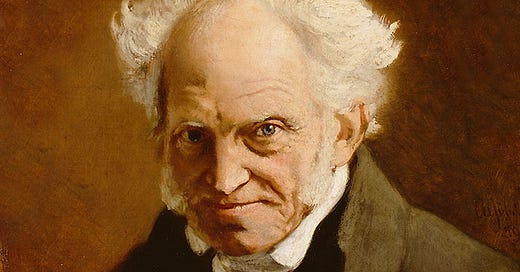


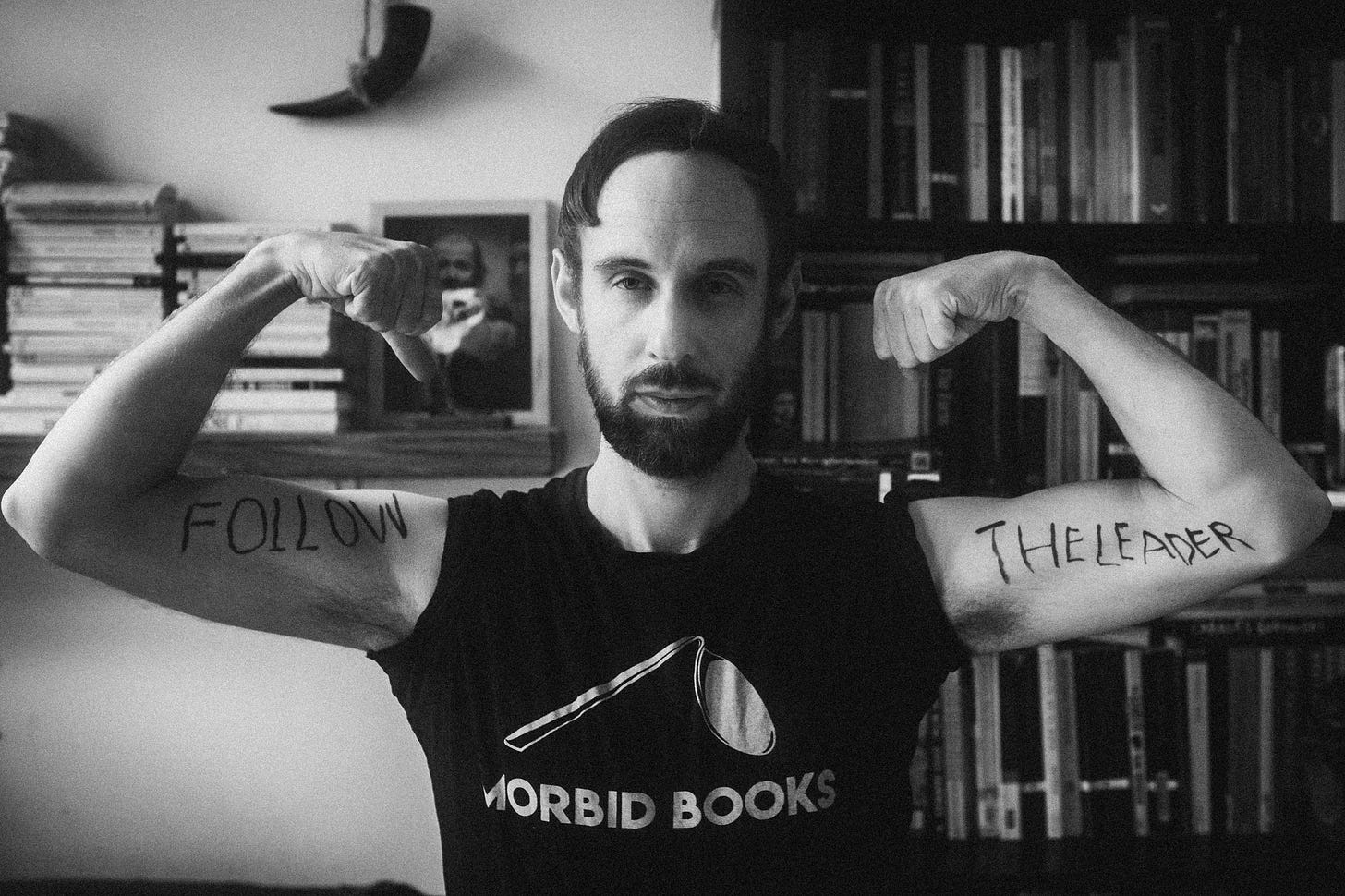
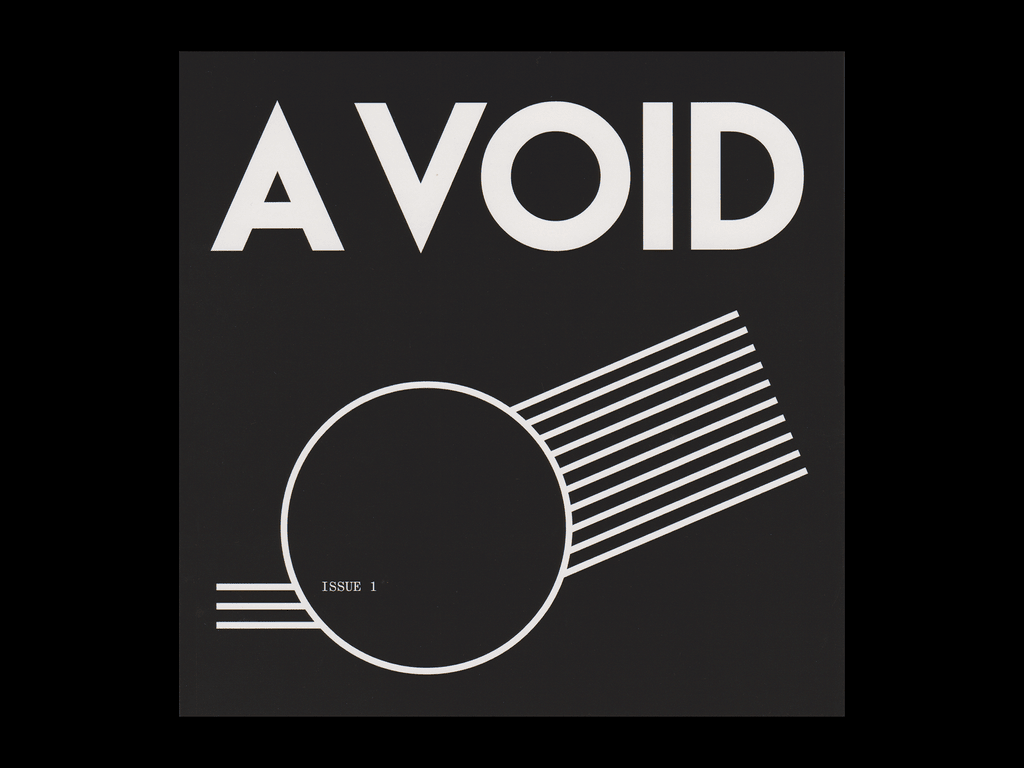
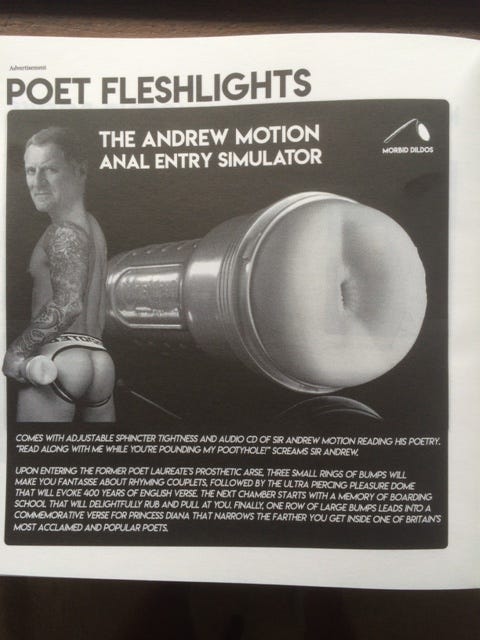
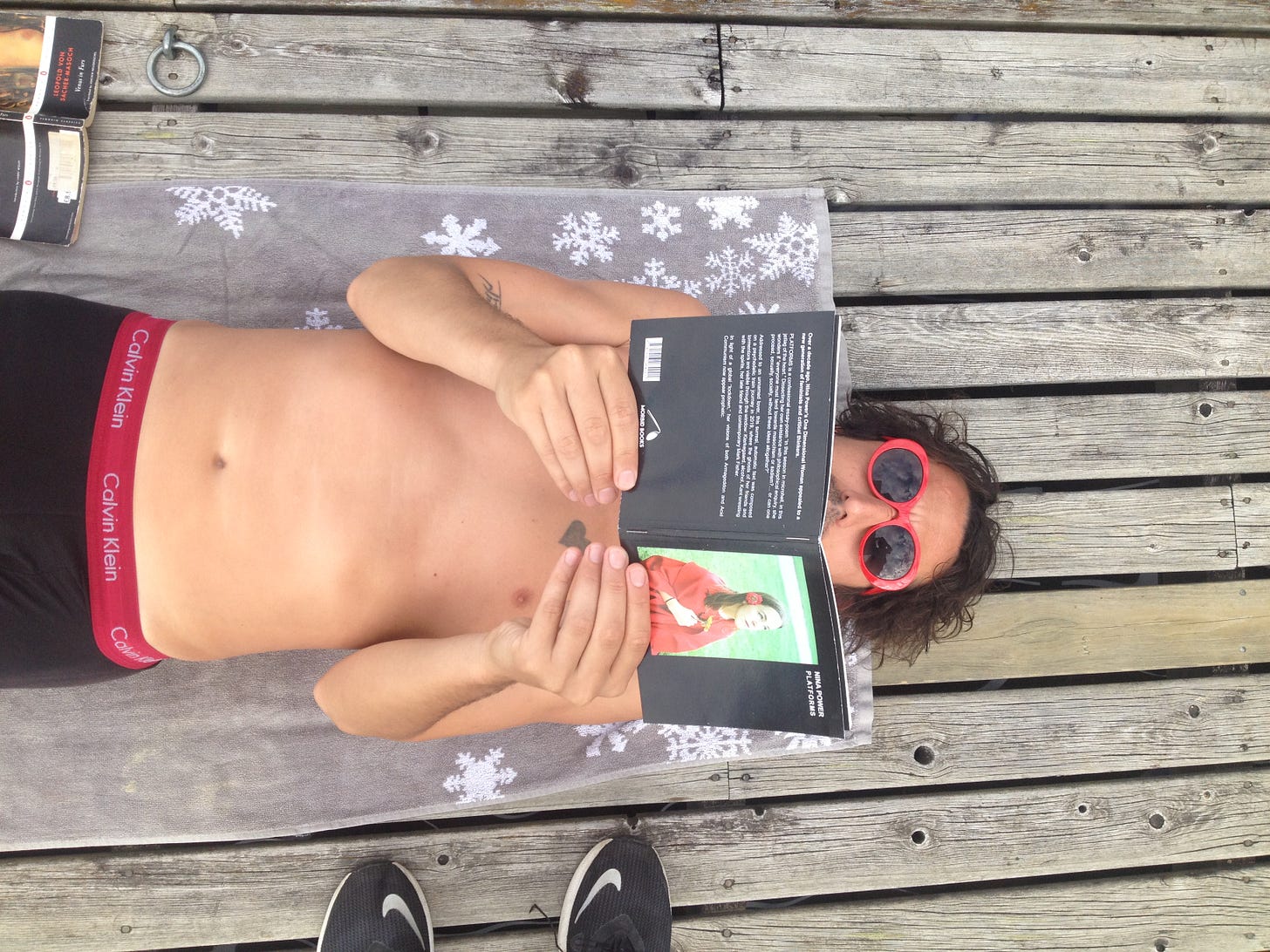

Who the fuck are these morons adam and lev? i can't believe this sub isn't more poipular. slay them all